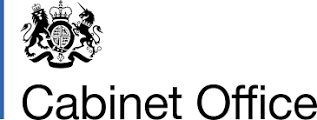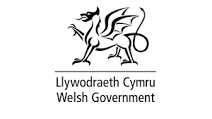PRESS RELEASE : Every pupil needs a good mathematics education [May 2012]
The press release issued by the Department for Education on 22 May 2012.
The report highlights a dramatic increase in the take-up of A level and further mathematics, and shows that the youngest children are doing better. GCSE and A-level results continue to rise as a result of the sustained efforts of teachers and students.
But the report finds 3 key areas in primary and secondary mathematics in schools in England, which need to be improved:
- firstly, not enough is being done to help pupils catch up who fall behind early; the 10% who do not reach the expected standard at age 7 doubles to 20% by age 11, and nearly doubles again by age 16
- secondly, inspection evidence shows that pupils in lower ability sets and younger pupils received the weakest teaching; inspectors regularly saw outstanding and satisfactory teaching, and sometimes inadequate too, within an individual school
- thirdly, lots of the brightest pupils do not fulfil their potential when they get to secondary school; 37,000 of the highest attaining primary school pupils got no better than a grade C at GCSE in mathematics last year; schools which routinely enter students early for GCSE mathematics are hindering their ability to reach the highest grades
Her Majesty’s Chief Inspector, Sir Michael Wilshaw said:
I want all children to have the best education they can and mathematics is a fundamental part of that. It is essential for everyday life and understanding of our world. Too many pupils do not fulfil their potential, including many of the most able, and those who get off to a poor mathematical start or fall behind in their learning never catch up.
We know it can be done. Over half of the schools visited in the survey were judged to be good or outstanding in mathematics, although even in these schools some inconsistencies in the quality of teaching need to be tackled.
We must all play our part to ensure that all pupils receive the best possible mathematics education. Ofsted will support schools to learn from the best, those with the best teaching and assessment and a well organised, mathematically rich, engaging curriculum.
Ofsted will produce support materials to help schools identify and remedy weaknesses in mathematics. It will raise ambition for the mathematics education of all pupils by placing greater emphasis in school inspection on:
- how effectively schools tackle inconsistency in the quality of mathematics teaching
- how well teaching fosters understanding
- pupils’ skills in solving problems
- challenging extensive use of early and repeated entry to GCSE examinations
The report recommends that the Department for Education should raise national mathematical ambition and take action to improve pupils’ mathematical knowledge and understanding. They should raise ambition for more-able pupils, in particular expecting those pupils who attained Level 5 at Key Stage 2 to gain A* or A grades at GCSE.
They should ensure end-of-key-stage assessments and GCSE and AS/A-level examinations require pupils to solve both familiar and unfamiliar problems and demonstrate fluency and accuracy in recalling and using essential knowledge and mathematical methods.
Welcoming the report, which contains good practice examples of mathematics teaching, National Numeracy’s chief executive, Mike Ellicock, said:
We believe every child can become a numerate adult – with skilful teaching in school and encouragement at home. This impressive report draws attention to the vital importance of numeracy and we hope its findings will be acted upon. It is essential that we all recognise the need for better support for those who struggle to catch up – at school and post-school.
Professor Celia Hoyles, Director of the National Centre for Excellence in the Teaching of Mathematics (NCETM) said:
A deep understanding of mathematics and of subject-specific pedagogy is crucial for teachers of mathematics. The NCETM welcomes the recommendations Ofsted has made, and looks forward to helping to embed them as part of the professional development of all mathematics teachers.
Carol Vorderman MBE, Chair of the committee reporting last August to the Secretary of State for Education with the influential report A world class mathematics education for all our young people, said:
This report is most welcome as it highlights many of the issues, which our taskforce found consistently create an unequal playing field at all levels in school. Ofsted recognises that the teaching of mathematics and the training of teachers both need to improve. Primary initial teacher training has not addressed the lack of mathematical ability in graduates training to be teachers, almost all of whom gave up maths at GCSE level. My sadness is to see how marked the difference in achievement and education is for those students on free school meals. As a “free school meals kid” at a comprehensive myself it was only because of my superb maths teacher that I was able to get to Cambridge. It is time for change.
Neil Carberry, CBI Director of Employment and Skills, said:
Basic maths is essential for everyday life, as well as a key skill required in the workplace. That’s why it’s so troubling over a third of pupils did not gain grade C in GCSE maths in 2011. Employers want all staff to be numerate, which means being able to confidently handle numbers, work out percentages and make estimates. We strongly support the Ofsted recommendation to encourage more young people to continue maths education post-16.



